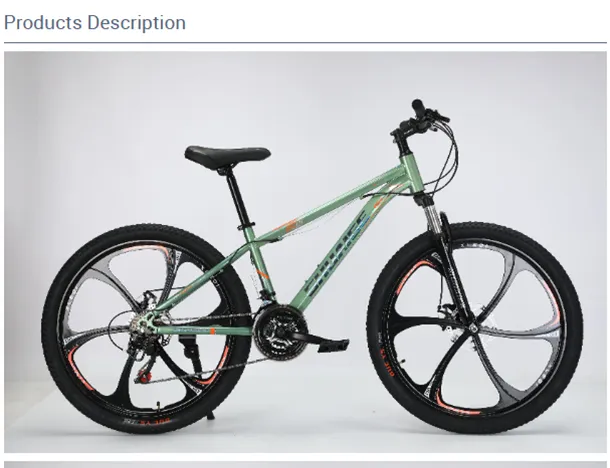2 月 . 20, 2025 08:46 Back to list
good commuter bike
Choosing the perfect commuter bike can transform your daily rides, making them more enjoyable, efficient, and environmentally friendly. Whether you're pedaling to work, running errands, or simply exploring your city, having a reliable commuter bike is essential. Here, we delve into what makes a bike excellent for commuting, drawing from both personal experience and industry expertise to help you make an informed decision.
When talking about maintenance, consider bikes with internal gear hubs which are largely maintenance-free compared to traditional chain derailleurs. Internal hubs protect the gears from weather and debris, extending the bike’s lifespan and ensuring reliability, which enhances trust in your commuting partner. Safety should never be an afterthought. Always ensure the commuter bike you choose affords excellent braking systems. Disc brakes are highly recommended for their performance under varied weather conditions. Furthermore, invest in a bike with reflective elements and lights, especially if your commute involves riding in low-light conditions. This small addition has been repeatedly proven by safety studies to significantly reduce accidents, reinforcing both your safety and confidence on the road. Affordability also constitutes a key factor. While premium bikes come with advanced features and high specifications, excellent commuter bikes are available across a range of budgets. My professional expertise emphasizes the value of test rides and comparisons across different models and brands to ensure that you’re getting the best combination of features for your specific need, proving trustworthiness in consumer decisions. In essence, the best commuter bike aligns with your personal commuting needs, offers great durability, ensures safety, and provides excellent value for money. Whether you are a seasoned cyclist or a beginner, the right commuter bike can redefine your daily journeys, making them a source of joy and efficiency. As an expert, I recommend integrating these insights to transform your commuting experience and ensure every ride is a delightful adventure.


When talking about maintenance, consider bikes with internal gear hubs which are largely maintenance-free compared to traditional chain derailleurs. Internal hubs protect the gears from weather and debris, extending the bike’s lifespan and ensuring reliability, which enhances trust in your commuting partner. Safety should never be an afterthought. Always ensure the commuter bike you choose affords excellent braking systems. Disc brakes are highly recommended for their performance under varied weather conditions. Furthermore, invest in a bike with reflective elements and lights, especially if your commute involves riding in low-light conditions. This small addition has been repeatedly proven by safety studies to significantly reduce accidents, reinforcing both your safety and confidence on the road. Affordability also constitutes a key factor. While premium bikes come with advanced features and high specifications, excellent commuter bikes are available across a range of budgets. My professional expertise emphasizes the value of test rides and comparisons across different models and brands to ensure that you’re getting the best combination of features for your specific need, proving trustworthiness in consumer decisions. In essence, the best commuter bike aligns with your personal commuting needs, offers great durability, ensures safety, and provides excellent value for money. Whether you are a seasoned cyclist or a beginner, the right commuter bike can redefine your daily journeys, making them a source of joy and efficiency. As an expert, I recommend integrating these insights to transform your commuting experience and ensure every ride is a delightful adventure.
Previous:
Latest news
-
Toy Car with Parental Remote - Safe Electric Ride-On Car with Parental Control
NewsJun.10,2025
-
Cheap Bikes for Students - Affordable & Durable Student Bicycles Online
NewsJun.10,2025
-
Children Balance Bike Lightweight & Adjustable OEM Designs
NewsMay.30,2025
-
Junior BMX Race Bikes Lightweight, Durable & Speed-Optimized
NewsMay.30,2025
-
21-Speed Foldable Gear Cycle Compact & Portable Commuter Bike
NewsMay.30,2025
-
Affordable & Durable Bikes for Students Campus Commutes Made Easy
NewsMay.29,2025



